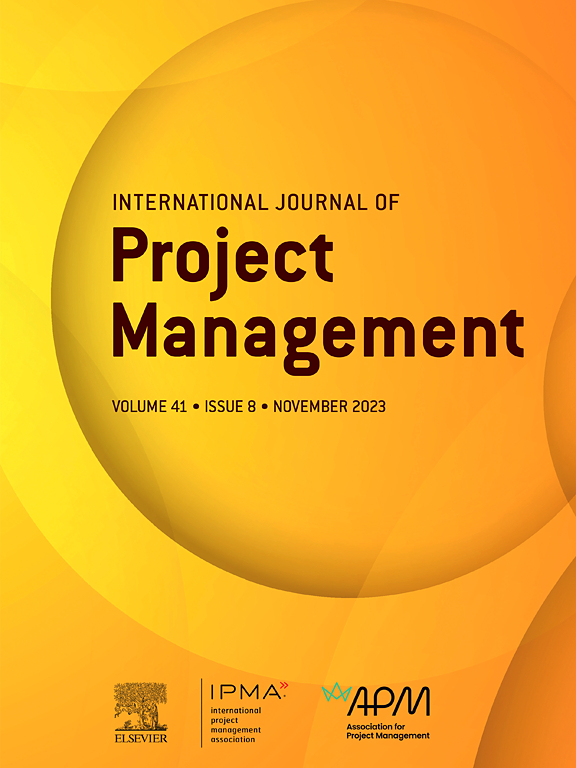Behavioral barriers to sustainable action in project management and how to overcome them
IF 7.5
1区 管理学
Q1 MANAGEMENT
International Journal of Project Management
Pub Date : 2025-07-20
DOI:10.1016/j.ijproman.2025.102747
引用次数: 0
Abstract
Project managers encounter behavioral barriers that hinder the integration of sustainability practices into projects. While prior research has explored enabling factors, these barriers project managers face remain understudied. We address this gap through 24 problem-centered interviews, identifying 13 barriers, including low goal commitment, perception-related challenges, feedback-related issues, and role conflicts. The Rubicon phase model provides a structured basis for our conceptual framework for analyzing these barriers, enabling the validation of known general barriers and the discovery of new role-specific ones. Our findings highlight the role-dependent nature of barriers and strategies to overcome them, such as leading by example, establishing guidelines, providing incentives, and capability development. While providing practical value the study also strengthens the theoretical understanding of sustainability-related decision-making and contributes to the sustainability and project management literature by showing that enablers like guidelines, training or rewards are insufficient without simultaneously addressing individual behavioral barriers in perceptions and beliefs.
项目管理中可持续行动的行为障碍及其克服方法
项目经理会遇到行为障碍,阻碍可持续性实践融入项目。虽然先前的研究已经探索了促成因素,但项目经理面临的这些障碍仍未得到充分研究。我们通过24个以问题为中心的访谈来解决这一差距,确定了13个障碍,包括低目标承诺、感知相关挑战、反馈相关问题和角色冲突。Rubicon阶段模型为我们分析这些障碍的概念框架提供了结构化的基础,从而能够验证已知的一般障碍并发现新的角色特定障碍。我们的发现突出了障碍的角色依赖性质和克服它们的策略,例如以身作则、建立指导方针、提供激励和能力发展。在提供实用价值的同时,该研究还加强了对可持续性相关决策的理论理解,并通过表明指导、培训或奖励等推动因素在没有同时解决个人认知和信念中的行为障碍的情况下是不够的,从而为可持续性和项目管理文献做出了贡献。
本文章由计算机程序翻译,如有差异,请以英文原文为准。
求助全文
约1分钟内获得全文
求助全文
来源期刊

International Journal of Project Management
MANAGEMENT-
CiteScore
12.30
自引率
26.20%
发文量
83
审稿时长
59 days
期刊介绍:
The International Journal of Project Management is recognized as a premier publication in the field of project management and organization studies. Our main objective is to contribute to the advancement of project management and project organizing through the publication of groundbreaking research.
We are dedicated to presenting fresh insights and new knowledge in various domains, including project management, program management, portfolio management, project-oriented organizations, project networks, and project-oriented societies. We actively encourage submissions that explore project management and organizing from the perspectives of organizational behavior, strategy, supply chain management, technology, change management, innovation, and sustainability.
By publishing high-quality research articles and reviews, we strive to revolutionize the academic landscape and propel the field of project management forward. We invite researchers, scholars, and practitioners to contribute to our journal and be a part of the progressive development in this exciting field.
 求助内容:
求助内容: 应助结果提醒方式:
应助结果提醒方式:


